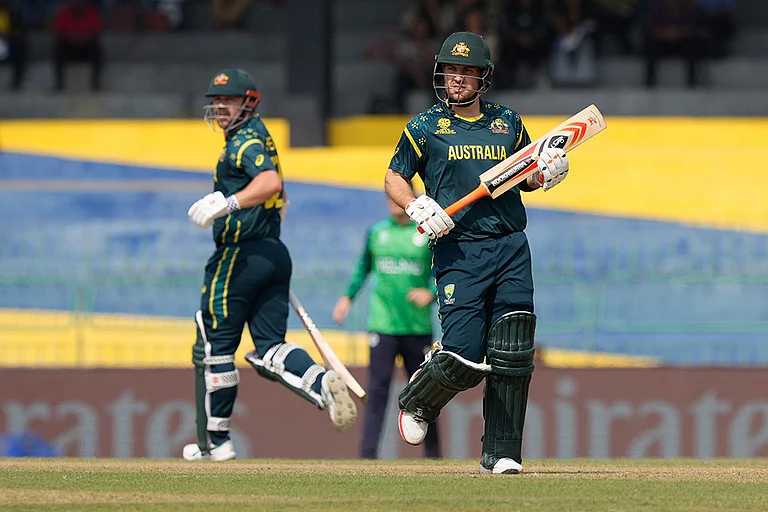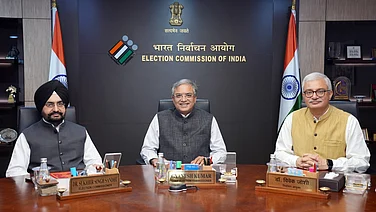The Supreme Court has provisionally allowed candidates with disabilities to seek admission into the Indian Police Service (IPS), a ruling seen as a major victory for activists and people with special needs fighting for equal rights.
Besides IPS, the top court also allowed admission to Indian Railways Protection Force Service (IRPFS) and the Delhi, Daman and Diu, Dadra and Nagar Haveli, Andaman and Nicobar Islands and Lakshadweep Police Service (DANIPS). Now disabled people can choose these services as preferred cadres through the Union Public Service Commission (UPSC).
In its interim order passed on Friday—a copy of which was assessed by Outlook—the apex court, however, refused to “interdict” the ongoing selection process.
The court asked “authorities, in particular, Secretary-General, Union Public Service Commission to accept hard copies of the applications” submitted before April 1, 2022.
The National Platform for the Rights of the Disabled (NPRD), a rights advocacy group, had challenged the blanket ban on the entry of people with disabilities in certain branches, saying that it was “manifestly arbitrary and thus violative of Article 14 of the Constitution of India”.
Senior advocate Arvind P. Datar, who appeared for NPRD, said that in a separate case, a different bench had ruled that, “the court has to give guidelines regarding the meaning of the nature of the workplace”.
The ruling had sparked a debate over the discrimination faced by the disabled in UPSC exams. The Department of Personnel and Training (DoPT) had denied posting to the 2014 UPSC first rank-holder Ira Singhal, citing her locomotor disability. She had appealed to the Central Administrative Tribunal (CAT) which had then accommodated her in the Indian Revenue Service (Customs and Central Excise).
Advocate Amit Kumar Yadav, a Javed Abidi fellow who himself is disabled since a childhood bout with polio said, “There is a wrong perception that the disabled are not eligible for police services because police have to go on ground. This is a lack of wider understanding or reaching out to the disabled community that they can do it.” There are multiple kinds of disabilities and “putting a blanket on was unfair. So, this decision is good in this regard.”
He, however, said that the problem persists in schools and colleges “who do not understand our problems. We don’t have the disability-friendly infrastructure.”
Yadav gives an example, “If I go to the examination centre, and my roll number is on the third floor, I can’t go up to the third floor. This is basic, but examination centres don't understand that. They get all the grants, but don’t work on creating a disability-friendly environment for us.”
Bandhan Sharma, a 28- year-old visually impaired UPSC aspirant who has been preparing for the exam for the last two years, said, “We talk about challenges after clearing the exam. But does anyone care about the challenges we face before appearing for this exam? There is three per cent reservation for persons with disability in each service, but only around 50 candidates clear the exam.
“From filling the application form, taking the exam at the examination centres to joining a service, our struggle goes on. In my case, I need someone to take me everywhere, for which I have to struggle a lot.”
Hema Sain, a PhD candidate in Delhi University, also raises what is known as “invisible disability”.
“First of all, in case of invisible disabilities, it takes time to recognise your disability. I have a disability due to arthritis; I get severe pain in my joints – to the level of disability. So, it took me a lot of time to recognise that I have a disability. Also, doctors don’t easily give certificates at the local level, and call them curable. Therefore, most of the people don’t even get to know that they have a disability,” she said, adding, “exams come later, but challenges start from the initial stage.”
“There is not much awareness about disabilities related to painful diseases. Which is the reason, you don’t see persons with invisible disabilities in many government services.”





















